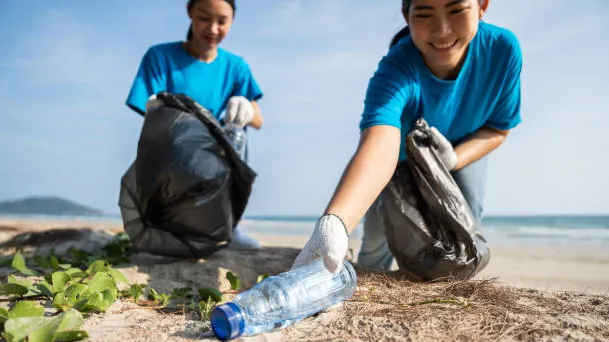
Global treaty key to advancing waste management in manufacturing: WEF
Unified policies and funding are essential for scaling plastic waste solutions in Asia.
As the Asian manufacturing sector faces waste management challenges, the 2024 World Economic Forum (WEF) report highlights that a comprehensive global plastics treaty could drive large-scale adoption of effective solutions. By harmonising efforts and mobilising financial resources, this treaty has the potential to transform waste management practices, fostering a more sustainable industry. However, scaling these solutions in existing markets and replicating them elsewhere remains a significant hurdle.
WEF's data from 59 case studies, two surveys, and 35 interviews indicate that most solution providers aim to scale their solutions locally and replicate them globally. Interviewees emphasised that the treaty could accelerate solution scaling by informing policies and mobilising financial mechanisms. Other suggested aspects include enhancing multistakeholder collaboration, building customer trust, and increasing awareness.
Compared to other factors, policy was mentioned twice as often as any other key enabler to scale industry solutions. Generally, most solution providers can scale up their solutions to a certain degree. However, new policies are deemed crucial for mainstream adoption. Bold and consistent policies are necessary to move from pilot to scale, as implementing policies only after scale is realised would be insufficient and ineffective in de-risking investments.
Enough resources for consistent implementation and enforcement are essential for policy interventions to achieve their anticipated effect. Many examples were mentioned of policies that could provide an enabling environment to speed up the adoption of solutions, with some focused on global rules and others accommodating local circumstances.
Definitional Complexity
Clear and consistent definitions are necessary when developing policies, particularly in defining plastics and distinguishing between "alternative plastics" and "non-plastic substitutes." A revised draft published after the Intergovernmental Negotiating Committee Third Session proposes provisions on alternative plastics and plastic products, including the terms "biobased," "biodegradable," "compostable," and "plastics from non-fossil feedstock." There's also a possible provision for non-plastic substitutes.
"Sometimes a plastic is referred to as something that is moldable under heating pressure, whereas in other cases, it is referred to as fossil-feedstock derived polymers. If we take both definitions, is a non-fossil feedstock derived polymer an alternative plastic or a non-plastic substitute?" the NFW Product Circularity Engineer said. Insignificant as it may appear, this could have big implications for the scope and applicability of other policies and regulations.
Policies on single-use plastics or recycled content require a clear understanding of what constitutes "plastics" and the materials, products, and applications to which policies and regulations apply. There are also concerns about the narrow perception of extended producer responsibility (EPR) as being limited to recycling, necessitating a clear definition of the concept. A global plastics treaty could harmonise EPR systems through a dedicated annex detailing key principles and design of effective EPR systems.
Bans are important interventions for effectiveness and rapid change, particularly for problematic plastics, packaging materials, chemicals, and applications. Harmonising bans between countries is crucial to avoid flooding non-banning markets with undesired items. A global plastics treaty can provide guidance on criteria to support an evidence-based approach to determine the context, circumstances, applications, and materials for bans.
Interviewees highlighted the need for specific targets for the "R" strategies—reduce, reuse, and recycle. In the absence of specific targets, there's concern that focusing too much on one strategy could undermine the potential of others. Clarity and enforcement of material quality and safety standards can increase trust in the materials and applications on the market. Health concerns also exist for both alternative and conventional materials, especially regarding reusing and recycling conventional plastics.
Access to finance is considered the most important factor in scaling industry solutions, with the treaty guiding financial flows to support a just transition. Solution providers in Asia, Africa, and Latin America often receive more public finance and grants than private investment, but they need more private investments and EPR schemes to scale effectively compared to solutions in North America and Europe.
Interviewees emphasised the need for harmonisation and long-term consistency of regulations to de-risk investments in new solutions. Long-term investments are necessary to build and fine-tune packaging manufacturing lines and recycling facilities, and legislation impacts demand for certain materials and packaging types. Clarity on the direction of regulation is essential for optimising manufacturing and recycling plants for anticipated material packaging and waste composition.
The global plastics treaty can support a disclosure framework to enhance transparency for tracking and tracing, incentivising private investors. Technologies like artificial intelligence and blockchain can support efficient and credible data collection, generating relevant insights for unlocking private finance. Aside from clear definitions and standards, building trust, creating awareness, and enhancing multi-stakeholder collaboration is also crucial.
Whilst the Global Plastics Treaty cannot mandate these factors top-down, the current negotiations and subsequent adoption and implementation phase provide a clear opportunity to educate, collaborate, and build trust, with all stakeholders playing their part.













